Beth Kephart's Blog, page 4
September 20, 2017
Juncture Notes 19: Writing to Stay Whole and an Interview with Camille Dungy
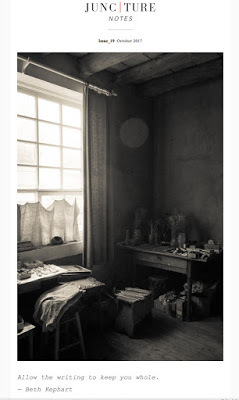 In the current issue of Juncture Notes, I reflect on the very necessity of writing, share an interview with the wonderful Camille Dungy (Guidebook to Relative Strangers), and feature the work of three of our readers. I also announce our plans to hold one five-day workshop and three one-day workshops in 2018.
In the current issue of Juncture Notes, I reflect on the very necessity of writing, share an interview with the wonderful Camille Dungy (Guidebook to Relative Strangers), and feature the work of three of our readers. I also announce our plans to hold one five-day workshop and three one-day workshops in 2018.The whole issue can be read (and shared) here. Please pass this link on to others who are seeking a substantive conversation about memoir and the many ways that it gets made.




Published on September 20, 2017 03:11
September 14, 2017
Longwood Gardens, One Day Memoir Workshops, Camille T. Dungy: coming soon


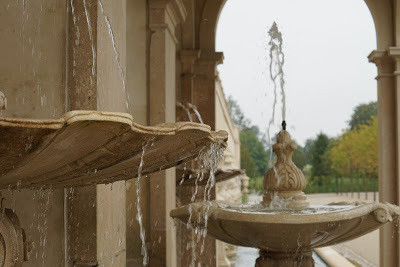 In a month, 20 writers will join us at Longwood Gardens for a sold-out, one-day workshop called Seedlings.
In a month, 20 writers will join us at Longwood Gardens for a sold-out, one-day workshop called Seedlings.Yesterday, in the rain, Bill and I walked the conservatory and grounds again, finalizing our plans.
Always go to Longwood Gardens in the rain.
The acres of beauty seemed to belong just to us. The upward arcing water, the platters of rain, the desert silvers and rocks, the pads and ponds. We had the orchid room to ourselves for a long five minutes. We stepped into the ballroom to hear (along with just a handful of others) the organ play. A kind volunteer urged us to lean and smell the lotus pods. The experimental garden was end-of-season deep with color and risk.
We can't wait for this day in October. We have so much we want to share and do, remember and write. We'll be creating more of these one-day events, and we'll be announcing them in the months to come here, and in Juncture Notes, our memoir newsletter featuring the top working memoirists of our time.
(Next up, in a few days, an interview with Camille T. Dungy, author of Guidebook to Relative Strangers: Journeys into Race, Motherhood, and History (W.W. Norton).)
Sign up for the free newsletter, if you haven't already, and stay in touch.




Published on September 14, 2017 05:38
September 7, 2017
What the painter Andrew Wyeth teaches about the narrative arts, in The Woven Tale Press
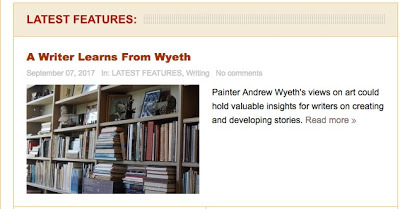 I've been thinking a lot about the Wyeth family. Reading and traveling, looking and thinking, standing in the galleries of the Brandywine River Museum of Art and allowing the wash of the Wyeth retrospecta to work itself on me.
I've been thinking a lot about the Wyeth family. Reading and traveling, looking and thinking, standing in the galleries of the Brandywine River Museum of Art and allowing the wash of the Wyeth retrospecta to work itself on me.This essay, on what Andrew Wyeth teaches us about the act and art of writing, erupts from that obsession. I'm so grateful to Sandra R. Tyler of The Woven Tale Press for sharing my enthusiasm and running the piece on her literary/art site today. Woven Tale is quickly becoming a mecca for writers and artists and those who understand the essential middle ground between the two.
So thank you. Here's a link to my story, which includes photographs of Andrew Wyeth's Chadds Ford studio.




Published on September 07, 2017 05:34
August 31, 2017
Beyond Words: My student, Josh Jordan, publishes his memoiristic essay in the PA Gazette
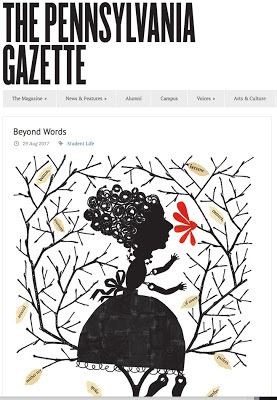 There are privileges associated with teaching. I've written about them here. The communities that form. The stories that emerge. The power, and the hope, I discover in those who come to my University of Pennsylvania classroom to write.
There are privileges associated with teaching. I've written about them here. The communities that form. The stories that emerge. The power, and the hope, I discover in those who come to my University of Pennsylvania classroom to write.Also? Continuing those conversations long after the class is done. Hearing from students who are out in the world, who send their continuing stories my way, who tell me not just the big stuff that is happening in their lives, but the small details they find arresting.
The things they notice.
Josh Jordan is among the mix of students I've been hearing from all summer long. Today he's sent a link to an essay now published in The Pennsylvania Gazette. This is a version of an essay that was written in our classroom last semester. We all loved it then for what it taught us about this young man's heart, his capacity to hear through silence.
And so it is my pleasure to introduce you to Josh Jordan. His piece is here.
I thank Trey Popp, of the Gazette, who said yes and then worked with Josh to make this a Gazette story.




Published on August 31, 2017 14:49
August 27, 2017
for Christopher Allen, in memoriam, lost to gunfire while covering the Sudan War
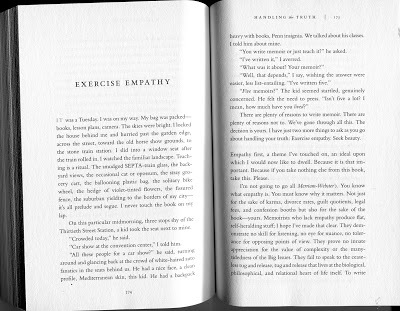 Earlier this morning my father called with the very sad news that Christopher Allen, a 26-year-old war reporter, has lost his life while covering the Sudan conflict. The story is being reported across the country as well as here, in our
Philadelphia Inquirer.
Earlier this morning my father called with the very sad news that Christopher Allen, a 26-year-old war reporter, has lost his life while covering the Sudan conflict. The story is being reported across the country as well as here, in our
Philadelphia Inquirer.
I'd been watching the Harvey news, terrified for that large swath of our country, for the people already lost, the land under water and siege. The very particular, very specific death of Chris entered into my swirl of sadness.
What do we do for the people who have been lost? It's a question I had already been pondering as I write my September essay for the Inquirer.
Right now, today, I simply want to share the best of Christopher, whom I met on a train while headed into Penn to teach several years ago. He impressed me at once—the intensity of his questions, the politeness of his phrasing—and soon I'd written him into Handling the Truth, the passage above, never thinking I would see him again.
Why would I see this perfect stranger again?
Later, however, I learned that Chris was the son of my father's friends. That he had graduated from Penn and moved to the theaters of conflict. That he was determined to be there, to cover the wars, to find the humanity in bloodshed. I spoke with his parents about Chris when he was gone. In the nave of a church, when he was home for a spell, I spoke with him. A few emails were sent.
He was just 26 years old, covering a war, and now he's gone. His legacy remains. Here is Chris, writing in his own words, for the Pennsylvania Gazette .




Published on August 27, 2017 10:01
August 19, 2017
one day at a time out here, and every day matters: my Philadelphia Inquirer piece on August
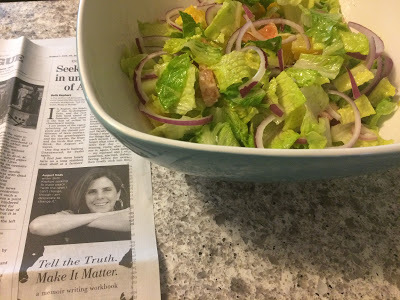 I am ending this Saturday evening with a citrus blue cheese salad, a mushroom chicken dish, and some sangria. Also this unexpected (appreciated) treatment of my story for the Philadelphia Inquirer.
I am ending this Saturday evening with a citrus blue cheese salad, a mushroom chicken dish, and some sangria. Also this unexpected (appreciated) treatment of my story for the Philadelphia Inquirer.This month I reflected on August—that time of year that forces patience, that reminds us of our bounty, that reminds us, too, of the fragile condition of our world and our always tenuous place in it. I wrote the piece before Charlottesville and Barcelona. I took photographs of fading flowers and fallowing farms. I felt, during the making of this essay, a deep sense of melancholia and encroaching .... something.
The encroachments came. They still keep coming.
We speak our truths. We work toward kindness. We seek a better world. And then, at the end of the day, we make the best meals we can for the people we love, because it's one day at a time out here, and every day matters.




Published on August 19, 2017 15:17
A memory keeper and book maker reflects on Tell the Truth. Make It Matter.
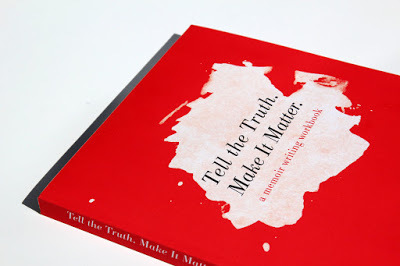 I will confess that I was useless for much of this past week. The news. All of it. How could any of us keep working, or giving, in the face of it?
I will confess that I was useless for much of this past week. The news. All of it. How could any of us keep working, or giving, in the face of it?So that when a beautiful photo of our workbook, Tell the Truth. Make It Matter., appeared on my Linked In feed, courtesy of Dawn M. Roode, I saw only that photo, so beautifully taken. It did not occur to me to click on any link.
Later, encouraged, I clicked on the link.
What I discovered was an absolutely gorgeous and unexpected advocacy for Tell the Truth from a woman who turns remembering into what she calls Modern Heirloom Books. That's the name of Dawn's company. This is what she does. And she found, in this workbook, an ally in the process.
It's worth clicking on this link just to see how beautifully Dawn does things. How much she gives. How she finds the energy to give, even right now. And I, of course, am very grateful to have a companion like this thoughtful, talented Dawn in this remembering world.




Published on August 19, 2017 04:27
August 16, 2017
We seek leadership from each other, and the cautionary Girl at War (Sara Novic)
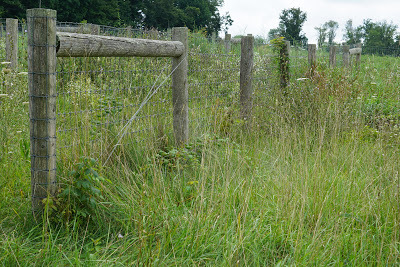 We are, in this country, in a state of profound bewilderment—or the vast majority of us are. Ours has become a land of unloosed epithet throwers, flame tossers, defacers, chanters, emboldened murderers...and the millions and millions of the rest of us who are saying no, this is not who we are, this is not what we want, this is not what our fathers and brothers and sisters and mothers have fought for, this is not the United States, this is not leadership, this is not even remotely "fine."
We are, in this country, in a state of profound bewilderment—or the vast majority of us are. Ours has become a land of unloosed epithet throwers, flame tossers, defacers, chanters, emboldened murderers...and the millions and millions of the rest of us who are saying no, this is not who we are, this is not what we want, this is not what our fathers and brothers and sisters and mothers have fought for, this is not the United States, this is not leadership, this is not even remotely "fine."Without leadership from the top, we seek leadership from each other.
I teach in the spring at the University of Pennsylvania. I take solace, on those Tuesdays, from the students who sit with me—the students who go deep, take risks, find the words, remind me of the future, the students who, in times of great moral peril, remain willing to imagine and empathize and tell the truth.
But I'll have to wait until January to meet them, and between now and then I find myself spinning, lost, then regaining traction through the books that I am reading. Camille T. Dungy's Guidebook to Relative Strangers: Journeys into Race, Motherhood and History has been alerting, and helpful. Edwidge Danticat's The Art of Death. CeCe Bell's El Deafo. Nina Riggs's The Bright Hour. And, read over a long period of time so that it would not come too soon to its end, Sara Novic's Girl at War.
Novic's much-lauded novel begins with the story of a ten-year-old girl living a tomboy's life in Croatia's capital. Things aren't perfect there, hardly—her baby sister is sick, money is tight, her father and mother are sometimes at odds. But there are still simple pleasures like bike rides with a best friend and the stories her father tells at night. All of which swiftly changes as war settles into this civilized place. Shattered buildings. Underground shelters. Plumes of war smoke watched from a balcony.
On the left, the twin peaks of Zagreb Katedrala stretched taller than all the surrounding buildings. I couldn't remember a time when the cathedral wasn't at least partly swathed in scaffolding and tarps, but that only added to its sense of majesty, its wounds a physical manifestation of the sorrows and confessions of the city. In nights before the war, two spotlights lit the stone towers in dual rushes of warm gold. Now, with the lights quelled in anticipation of a blackout, it was difficult to pinpoint the boundary between the spires and the night sky.
And things are about to get worse, as Ana's baby sister is sent away for medical help, a car blockade derails Ana's life, and Ana finds herself in a safe house learning the mechanics of warfare. Later Ana will be secretly ushered to the United States. She'll struggle to live with her buried past. She'll finally return to the country that was broken by war.
While not an autobiographical novel, Girl at War is an utterly authentic one—a story Novic began writing as an 18 year-old in a college classroom. She pursued the facts in long months spent in Croatia. She kept writing until she found its arc.
The result is vivid, heartbreaking, and not just historical. It is alive with the cautions of what happens when communities allow minor and major differences (a desire for new roads, a hatred for cultural differences) to tear themselves apart. It seemed to me, as I finished reading yesterday, to be an exemplary cautionary tale.
If we let ourselves devolve into the fractions the white supremacists hope we will, we will become a country even more at war with itself. We must, then, lead from within. Lead each other.
I'm teaching literary middle grade and young adult literature next spring at Penn—the writing of books for and about the young that sear into our minds and hearts by virtue of their organic concerns and crafted structures. Sara Novic, whose adult Girl at War won an Alex Award (books written for adults that have special appeal to young adults, ages 12 through 18) will be coming to Penn on March 13, 2018, as part of my curriculum.
(As always, I have Julia Bloch and Jessica Lowenthal to thank for making my guest-list dreams come true.)
I know that seems like a long way off. I know we can't imagine who we will be, as a nation, at that time. No matter what, mark your calendars. Read her book in the meantime.




Published on August 16, 2017 04:03
August 9, 2017
watching the teachers teach in a trembling world
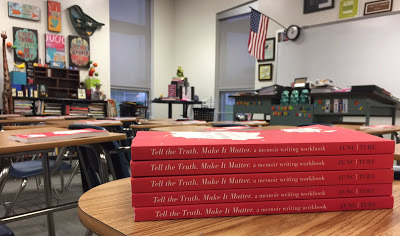 I have been teaching for a surprisingly long time now—elementary after-school programs, creativity workshops in my family room, gatherings across the country, my work at Penn—but there is nothing quite like watching other teachers teach.
I have been teaching for a surprisingly long time now—elementary after-school programs, creativity workshops in my family room, gatherings across the country, my work at Penn—but there is nothing quite like watching other teachers teach.I got to do that yesterday among the educators of the Lower Merion School District. I'd been invited in for a morning dedicated to writing. I'd been asked to teach, and I decided to teach truth with the help of my workbook, Tell the Truth. Make It Matter., as well as some words from Ali Benjamin. But before and after my workshop hour, I was listening—watching as these dedicated professionals launched a program designed to nurture story-inclined students...and to help those students nurture others.
The teachers inspired, suggested, surprised. They distributed custom notebooks lined with student work. They read aloud from student stories and shared their own. They called out not just for ideas, but for a democracy of ideas. They engaged. They meant what they said.
The world is a trembling, uncertain place, but something entirely tangible and lastingly good happens when teachers and students give up half an August day to talk about why stories actually matter, and to make those stories matter even more.
Earlier this week, from across the country, Glenda Cowen-Funk, another teacher thinking about Truth and our national landscape, surprised me with an astonishingly thoughtful essay describing how Tell the Truth might enter classroom conversations. That amazing essay is here . A few days before, the educator Paul Hankins surprised me with the photograph you see above: Truth lying in wait in his classroom.
There is an easy way to teach, an easy path, a tried and mostly true. But then there are the educators from whom I've learned this week—teachers who step in with something new and with open hearts and with the words, Let's see what happens.
Teachers who dare to take another path and to be there when the new door opens.




Published on August 09, 2017 06:25
August 1, 2017
we don't foresee the gifts we're given: an unexpected honor for THIS IS THE STORY OF YOU
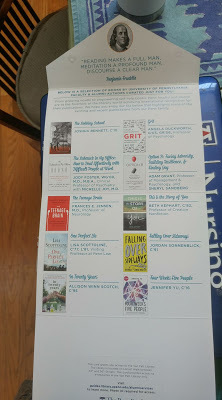 On Saturday afternoon the phone rang. It was my father on the line. He'd just collected his mail, opened a package from the University of Pennsylvania, and discovered my most recent novel, This Is the Story of You, featured in "a selection of books by University of Pennsylvania faculty and alumni authors curated just for you."
On Saturday afternoon the phone rang. It was my father on the line. He'd just collected his mail, opened a package from the University of Pennsylvania, and discovered my most recent novel, This Is the Story of You, featured in "a selection of books by University of Pennsylvania faculty and alumni authors curated just for you."Adam Grant, Lisa Scottoline, Angela Duckworth, Jordan Sonnenblick, Jennifer Yu, Allison Winn Scotch, Frances Jensen, Jody Foster, Joshua Bennett, and, somehow, me.
My childhood friend, Susan Renz, also received a copy. It is her photograph above.
This is the thing about this writing life: we may wish for many things, but we rarely see the gifts coming.
In 1998, I was far away, in London, when I discovered several notes stuffed under the hotel room door, notes imploring me to call my editor and my agent right away. The news? My first book had been nominated for a National Book Award. What? I said, many times, after I connected with dear Amy Rennert, after I spoke with the courageous editor who had said yes to my book, Alane Mason. Can you help me understand?
I was doing the bills when I learned I won a Pew Fellowships grant.
I was talking to my mother when I learned I won a poetry prize.
I was sitting in the New York Times auditorium when Meredith Vieira called me to the stage to receive an award for Handling the Truth. My shoes were too tall. I could barely get there.
And, this past Saturday, I was sitting very still, reading Camille Dungy's powerful new collection of essays, Guidebook to Relative Strangers, when my father called and began to explain the package he'd received.
What? I said, many times.
There are so many things I have hoped for in this writing life, and most of those things have proven elusive. Just last month a near promise on a new book turned to a fizzle. Just yesterday, something I had been hoping for slipped through my pale fingers. And then there are these unforeseen, unimagined, even, moments when someone (you don't know who, and you'd like to thank them) says, in one way or the other, you have been seen.
To that special whomever within The Penn Fund who thought to include my work in this remarkably diverse and interesting list of titles: You have surprised me. You have heartened me. Thank you.




Published on August 01, 2017 04:54



